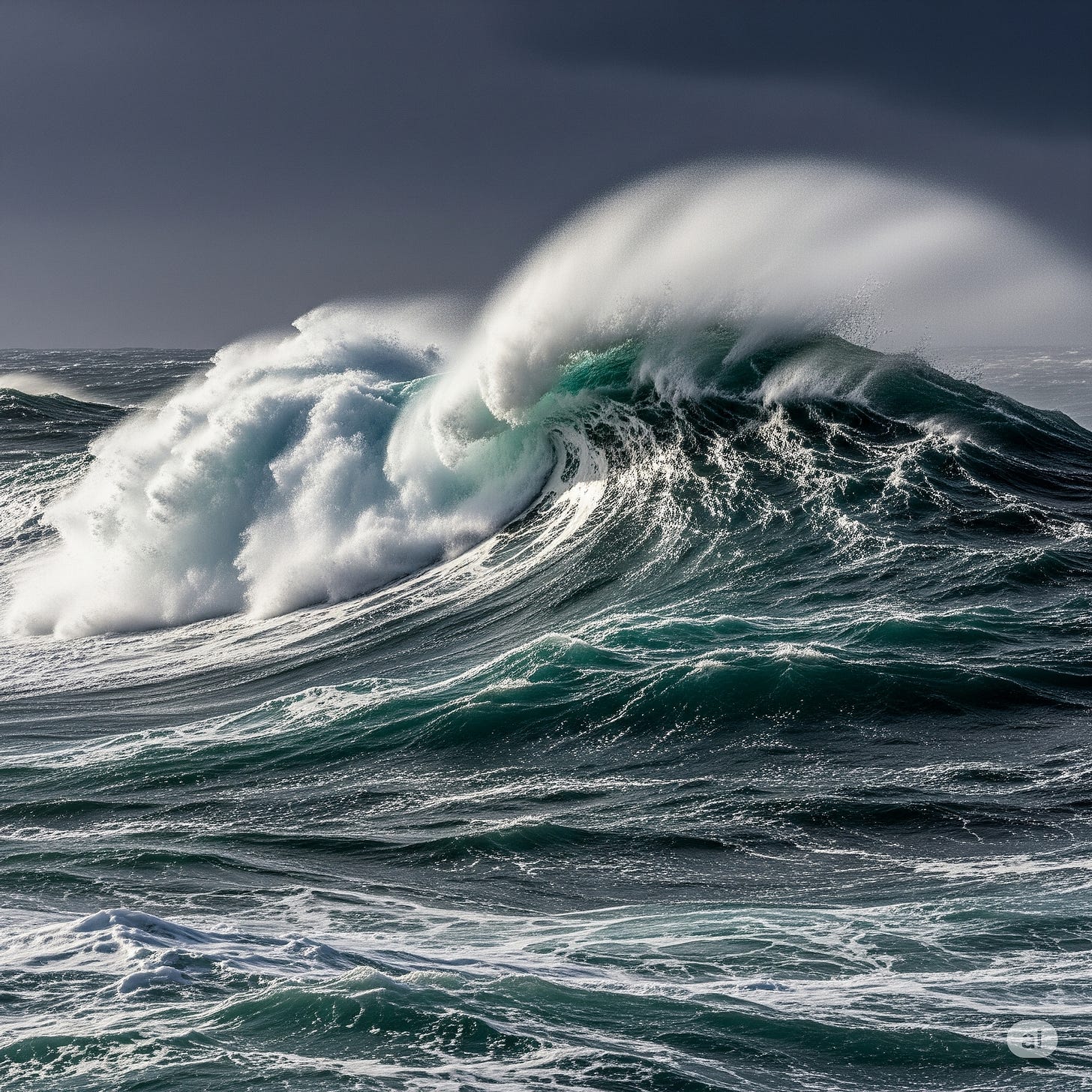The Lord of the Storm
6/9/25 Bible Thought (Acts 27)
God’s ways can be trusted, even if they’re not always understood. Oftentimes we might not be able to make sense of His plan; but we aren’t called to make sense of His plan, but to walk by faith.
In Acts 27, the apostle Paul is being taken as a prisoner to Rome to appeal before Caesar. The journey, hundreds of miles long, would take place largely at sea. The trip began well enough, even if it wasn’t entirely problem free.
Then came the island of Crete.
They find port at a city on the island named Fair Havens (Acts 27:8). However, this wasn’t the best place to spend the winter, and it was already mid-October at the earliest.
Paul, being familiar with shipwreck himself, warned,
“Sirs, I perceive that the voyage will be with injury and much loss, not only of the cargo and the ship, but also of our lives” (Acts 27:10).
Wintertime travel was dangerous. Yet, they wouldn’t listen to a prisoner, and decided to set sail anyways, hoping to make it roughly 50 miles down the coast to a better port city on the Island named Phoenix.[1]
It’s at this time that all goes wrong. They were hoping to travel west along the southern shore of the island when an infamous wind from the northeast pushed them away from the island. Suddenly, they found themselves adrift in the middle of the Mediterranean, utterly helpless.
For two weeks this storm continued on, causing such panic that no one ate (Acts 27:33). At one point, it got so bad that Luke recounts,
“When neither sun nor stars appeared for many days, and no small tempest lay on us, all hope of our being saved was at last abandoned” (Acts 27:20).
All hope was gone. That is, until the God of hope sent a message from heaven to Paul. An angel came and reminded him of what he already knew: he was to testify in Rome (Acts 27:24; 23:11).
Paul wouldn’t be dying on this journey.
The Lord Jesus had already given His word that Paul would testify in Rome. God’s Word has never failed, so even in the midst of the most wildly dangerous situation, Paul could take heart. Not only this, but there was also a bonus, God granted all the lives of those on the ship as well, not just Paul’s (Acts 27:24b).
When cargo, tackle, hope, and nearly everything had been jettisoned into this situation the God of heaven steps in. What is so fascinating though, is that God didn’t stop the storm.
Years earlier, the Lord Jesus was aboard a fishing vessel in the Sea of Galilee when a storm arose that panicked professional fishermen. Jesus showed off His power by stopping the storm, causing them to wonder, “Who then is this, that even the wind and the sea obey him?” (Mk. 4:41).
Yet, here, God carries them through the storm with a word—a message of hope.
In our own lives, at times we feel storm-tossed, even if we might not literally be on a boat in the Mediterranean. We can be encouraged today that sometimes the Lord of the storm will stop the storm. Surely, He’s always powerful enough to do so. Yet, at other times, He allows us to undergo the storm and His presence and promise with us hope will carry us through.
Take heart. Whether or not He stops the storm is up to Him. He’s still sovereign either way.
He’s the Lord of the storm whether it stops, continues, or even worsens and He will be faithful through it all. So, even when we can’t understand His ways, we can trust Him.
[1] Clinton E. Arnold, Acts, ed. Clinton E. Arnold, vol. 2B of Zondervan Illustrated Bible Backgrounds Commentary (Grand Rapids, MI: Zondervan, 2002), 256.


